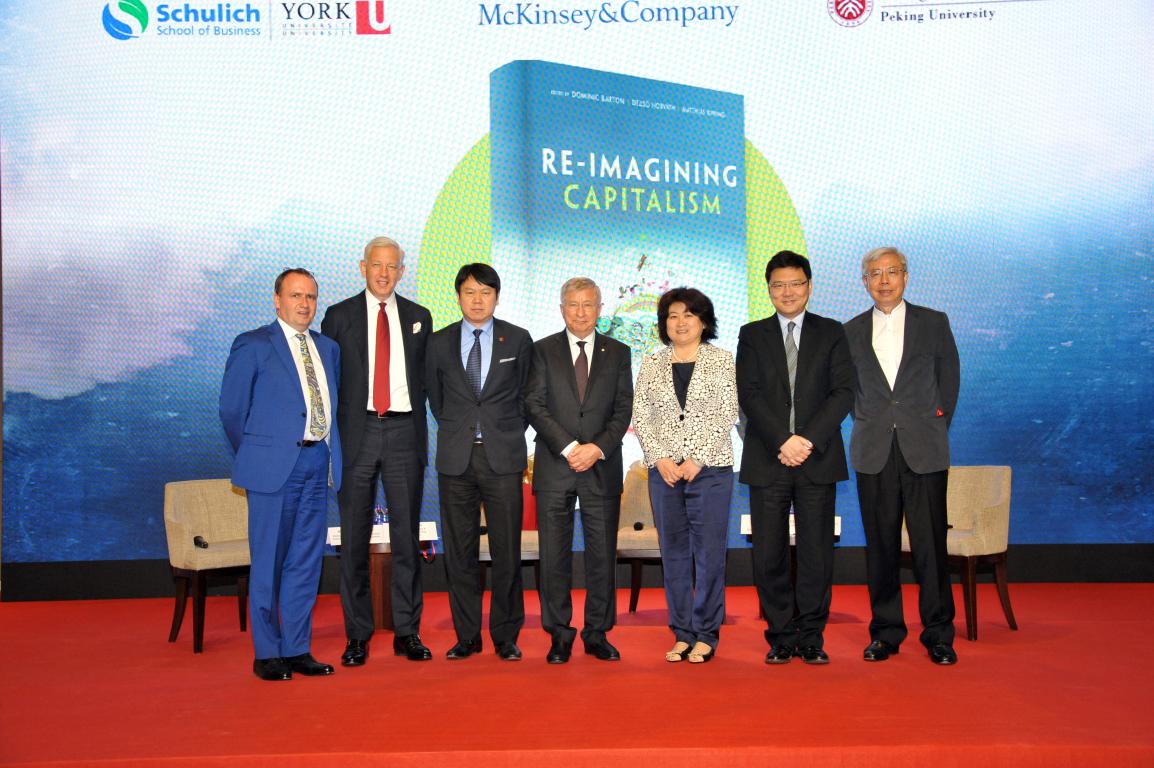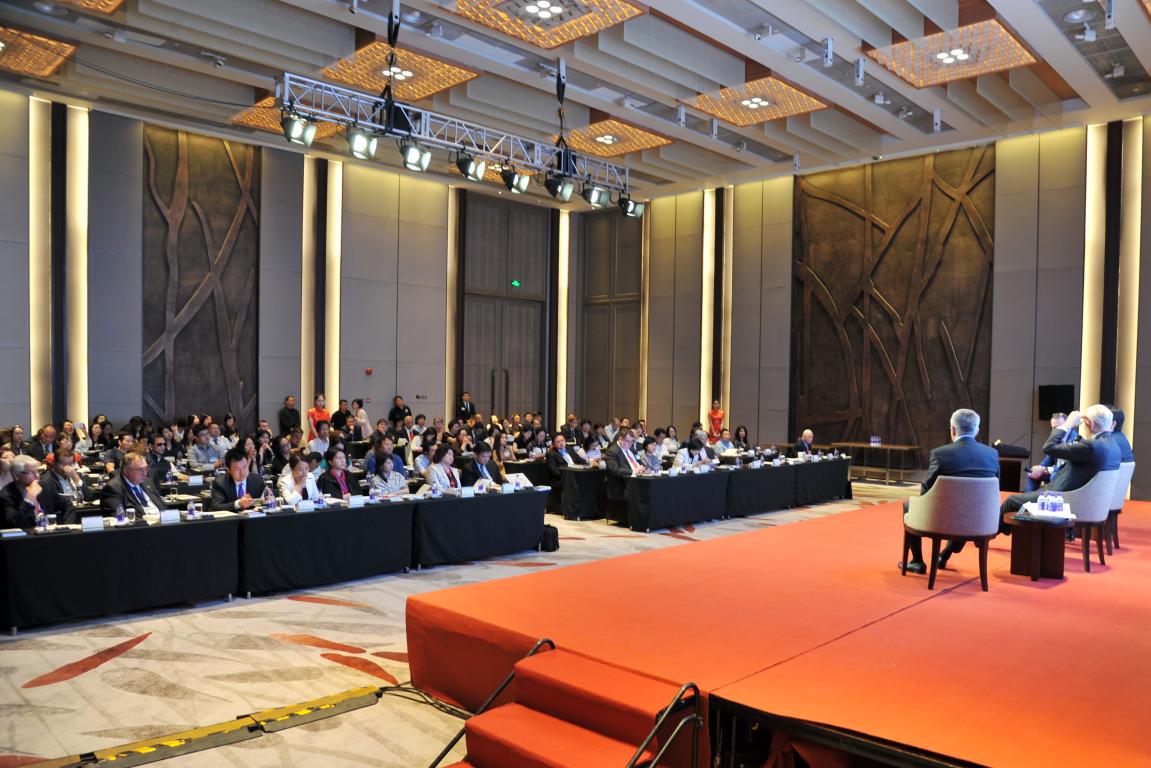
Global capital should focus more on the long term, and Chinese companies are taking the lead in this regard, scholars and global company executives said on May 28 in Beijing at a seminar focusing on the book Re-Imagining Capitalism hosted by Peking University’s Guanghua School of Management, McKinsey & Company, and the Schulich School of Business.
As highlighted during the discussion, the shareholder base of the global financial market is changing rapidly, with heightened activism, more passive investment and higher turnover. In 1976, the average stock holding of a public company was four years, while in 2015 it was shortened to seven months. Higher turnover has caused investors to expect returns in shorter periods of time.
Globally, company executives feel pressure from stakeholders who are taking short-term views on investment. According to a survey cited in the afternoon’s discussions, 87% of senior executives report feeling the most pressure to demonstrate financial results within 2 years.
The survey found that Chinese companies have generally taken a longer term view on strategy and investments. Globally, 51% of companies said they would delay a project that had long-term value but could potentially impact a desired earnings target, while only 18% of Chinese companies said they would delay such a project. However, research found that short-termism is very costly to companies, investors and society as a whole. In fact, it may have cost the US economy than 5 million jobs, $1 trillion in GDP value, and more than $1 trillion in asset value.

As for reasons behind Chinese companies’ preference on long-term planning, Chinese executives interviewed in the survey say the transition from the old to new economy has pushed them to think longer-term.
Furthermore, Chinese companies highly value stable leadership for long-term value creation and believe their strategic plans are well-defined. Around 80% of Chinese companies say they have long-term perspectives embedded into their corporate cultures. While Chinese companies have tended to adopt longer-term strategies, some participants suggested Chinese companies must begin looking for ways for their investments must produce higher returns if they are going to create value for their stakeholders over the long-term.
Suggestions were listed in five areas to help all companies to forge longer-term strategies: 1) Asset owners and managers should reorient portfolio strategies toward longer-term investing; 2) they should also engage and be active owners; 3) investors and corporations should improve the dialogue between each side; 4) the company boards should shift focus to support long-term strategy and sustainable growth; and 5) regulators are suggested to modify policies to encourage longer-term investing and strategy.
The afternoon’s discussion also touched upon the status quo and the future of the Chinese finance industry. It was suggested during the event that China does not need more people to get involved in this industry, but needs more market-oriented financing to serve the real economy.
At least one participant commented that, at present, the tremendous Chinese market is playing a unique role globally – it can be a perfect test market given its huge size. The size brings risks, but if a new technique can spread fast in the Chinese market, it will be very likely to succeed in other markets. It was also suggested that other markets will soon start following the trends in China.
Among the seminar discussion leaders were the three editors of the book Re-imagining Capitalism, namely Dominic Barton, Global Managing Partner of McKinsey & Company; Dezsö J. Horváth, Dean and Tanna H. Schulich Chair in Strategic Management of Schulich School of Business; and Matthias Kipping, Professor and Richard E. Waugh Chair in Business History at Schulich. Dominic Barton and Dean Horváth were joined by LIU Qiao, Dean of Peking University’s Guanghua School of Management, for the event’s opening panel that was moderated by Professor Kipping.
According to the editors, the book reflects both the urgency of the needed action and the tremendous opportunity to forge consensus and catalyze a lasting movement toward a more responsible, long-term and sustainable model of capitalism.
Contributors of the book have been at the forefront of thought and action in regard to the future of capitalism. The first edition of the book was published by Oxford University Press in 2016.
Aside from opening panelists, other panelists included Jonathan K.H. Cheung, president of Schulich China Alumni Chapter, as well as executives from Corning, Microsoft, China Investment Corporation, Huawei and Shanxi Jinhui Group.
The topics ranged from the global trends of capitalism to the perspectives of multinational companies in China as well as those of Chinese companies.
 Programs
Programs